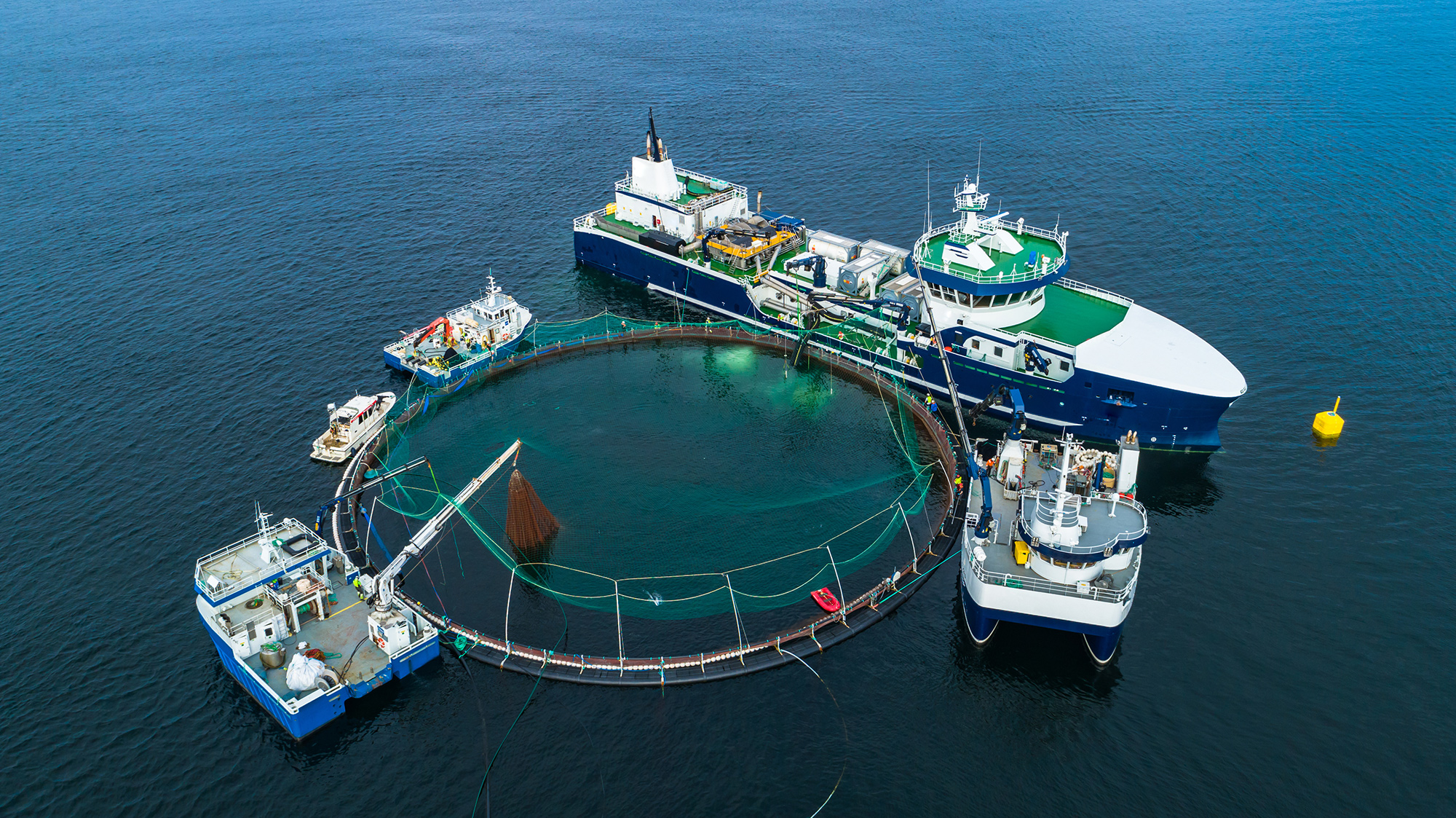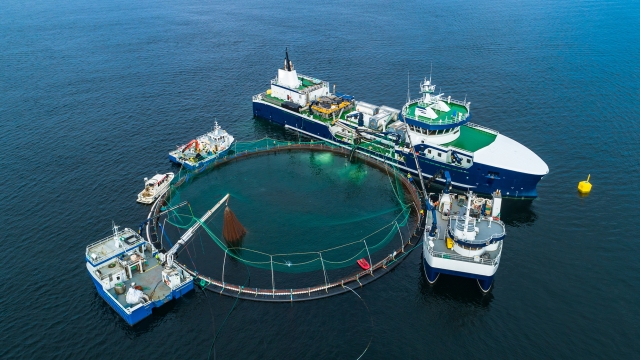
As the global population continues to grow, the demand for sustainable and efficient food sources has never been more critical. Aquaculture, the practice of cultivating aquatic organisms, plays a vital role in addressing this challenge. Innovations in aquaculture technology are transforming how we produce food from the water, making it more sustainable and accessible than ever before. From advanced breeding techniques to cutting-edge monitoring systems, the industry is poised for a revolution that could significantly impact global food security.
At The Rokter, we are dedicated to exploring these advancements and their potential to reshape the future of food. Our platform serves as an authoritative hub for aquaculture technology and sustainability insights, offering in-depth blog posts and valuable industry resources. We also provide a dedicated forum where aquaculture professionals can connect, share knowledge, and collaborate on solutions to common challenges. Join us as we navigate the exciting developments in aquaculture that promise to enhance both production efficiency and environmental stewardship.
The Importance of Aquaculture Technology
Aquaculture technology plays a crucial role in meeting the growing global demand for seafood. As the world’s population increases and wild fish stocks become more depleted, innovations in aquaculture are essential for ensuring a sustainable supply of fish and other aquatic organisms. Advances in breeding, feeding, and health management technologies can significantly enhance production efficiency, which is vital for the future of food security.
Moreover, the integration of technology in aquaculture addresses environmental concerns associated with fish farming. Modern practices focus on reducing the ecological footprint of aquaculture through improved water quality management, waste recycling, and disease control methods. By adopting these technologies, aquaculture can contribute to preserving marine ecosystems while providing sustainable livelihoods for farming communities.
Finally, the exchange of knowledge and insights within the aquaculture industry is facilitated by platforms like The Rokter. This hub serves as a valuable resource for professionals to access the latest research, best practices, and case studies, fostering innovation and collaboration. By connecting experts and practitioners, we can collectively push the boundaries of aquaculture technology and ensure the industry’s responsible growth.
Latest Innovations in Aquaculture Equipment
Aquaculture technology has seen remarkable advancements, particularly in equipment designed for better efficiency and sustainability. One of the leading innovations is the development of autonomous underwater drones, which are now used for monitoring fish health and habitat conditions. These drones can collect real-time data on water quality, temperature, and even detect the presence of pathogens. By minimizing human intervention, these devices enhance the accuracy of data collection and contribute to a healthier aquaculture environment.
Another significant innovation is the introduction of advanced feeding systems that utilize smart technology. These systems can analyze fish feeding behavior and adjust the quantity and timing of feed delivery accordingly. This precision not only reduces waste but also promotes optimal growth among the fish by ensuring they receive the right amount of nutrients. The integration of artificial intelligence in these feeding systems allows for continuous learning and improvement, making aquaculture practices more efficient.
Finally, biofloc technology has gained traction as a sustainable approach in aquaculture. This system promotes the growth of beneficial microorganisms in water, which serve as a natural food source for fish. With the use of aeration and appropriate management, biofloc technology enhances productivity while reducing feed costs and environmental impacts. The implementation of this technique is gaining popularity among aquaculture professionals looking for innovative ways to make their operations more sustainable and economically viable.
Sustainability Practices in Aquaculture
Sustainability practices in aquaculture are essential not only for the health of marine ecosystems but also for the long-term viability of the industry. Implementing responsible feeding strategies is a critical aspect of sustainable aquaculture. By utilizing alternative feed sources, such as insect protein and plant-based meals, producers can reduce the reliance on wild-caught fish for feed, thus alleviating pressure on ocean fisheries and promoting ecological balance.
Animal welfare is another cornerstone of sustainable aquaculture practices. Farmers are increasingly adopting methods that prioritize the humane treatment of farmed species. This includes providing enriched environments that allow fish to exhibit natural behaviors, as well as ensuring optimal health through responsible breeding and disease management. Such practices not only enhance the quality of the fish but also contribute to the well-being of consumers who are becoming more conscious of animal ethics in their food choices.
Water management plays a pivotal role in promoting sustainability within aquaculture. Implementing recirculating aquaculture systems (RAS) can significantly reduce water usage and minimize the discharge of waste products into surrounding environments. By recycling water and treating waste effectively, these systems help mitigate the ecological footprint of aquaculture farms. Additionally, integrated multi-trophic aquaculture (IMTA) systems, which combine different species in a synergistic manner, can enhance resource efficiency and promote a healthier ecosystem overall.
Challenges Facing Aquaculture Today
Aquaculture, while holding immense potential to support global food supply, faces several significant challenges. One of the primary issues is environmental sustainability. Overfishing, habitat destruction, and pollution from fish farms can significantly impact marine ecosystems. As the demand for fish and seafood continues to rise, maintaining a balance between production and ecological health becomes increasingly difficult. The industry must adopt innovative practices that minimize environmental impacts while still meeting consumer needs.
Another critical challenge is disease management within aquaculture systems. High-density farming conditions can lead to the rapid spread of pathogens, which can decimate stocks and result in substantial economic losses. The reliance on antibiotics and other treatments can exacerbate problems related to resistance and further strain environmental resources. Developing effective biosecurity measures and exploring alternative health management strategies are vital to ensuring the vitality of aquaculture operations.
Lastly, market dynamics pose a challenge to aquaculture growth. Fluctuating prices, competition from wild-caught fisheries, and regulatory constraints can hinder profitability and sustainability efforts. Aquaculture professionals must navigate these market challenges while ensuring that fish farming practices remain economically viable. Addressing consumer concerns about food safety and environmental impacts will also play a crucial role in shaping the future of aquaculture.
Building a Community of Aquaculture Professionals
Creating a vibrant community of aquaculture professionals is essential for driving innovation and sharing best practices within the industry. Platforms like The Rokter serve as gathering places where professionals can connect, exchange ideas, and collaborate on various challenges facing aquaculture today. By fostering an environment that encourages open dialogue and resource sharing, we can build a network that supports both seasoned experts and newcomers to the field.
The dedicated forum at The Rokter is a prime example of how an inclusive community can benefit all members. Here, participants have the opportunity to pose questions, share insights, and provide feedback on cutting-edge technologies and sustainable practices. The collective knowledge shared in these interactions can lead to breakthroughs that push the industry forward, ensuring that aquaculture continues to adapt and thrive in the face of changing environmental and market conditions.
Engagement through in-depth blog posts and industry resources also plays a crucial role in this community-building effort. By providing valuable content that addresses the latest trends and challenges in aquaculture technology, The Rokter not only keeps professionals informed but also encourages them to contribute their own experiences and knowledge. This collaborative atmosphere is vital for nurturing innovation and sustainability, ultimately shaping a brighter future for aquaculture as a whole.



